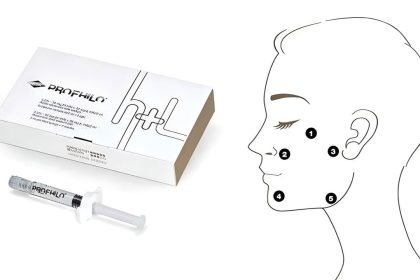“Mom, what does period mean?”
If you are a woman and you have been struggling with this question, or you have a teenage daughter who has just matured and you need scientific information, or you are a man and you want to know why the behavior of women around you changes during period days, read this article to find out once and for all. What is period, what causes bleeding, what are the symptoms of period and how can you manage them properly.
What are the stages of the menstrual cycle or period?
Ovaries release one egg every month. This state is called ovulation. Hormonal changes at this time prepare the uterus for pregnancy. If the egg released during ovulation is not fertilized, the lining of the uterus sheds. to this period, Menstruation they say.
Simply put period The monthly shedding of the inner lining of the uterus. Period is also known as menstruation, period, menstrual cycle or period. Menstrual blood is the inner wall of the uterus, which consists of blood and cell layers. This layer, which is called endometrium, after shedding, comes out of the vaginal canal in the form of blood.
Read more: Guaranteed methods of ovarian cyst treatment at home
The menstrual cycle of women starts from puberty and continues until menopause, which is known as the fertile period. The benefit of the menstrual cycle during this period is to keep the woman’s body ready for pregnancy and childbirth.

In short, the whole Menstrual cycle Or period can be divided into four stages:
- menstrual phase From one to 5 days – shedding of the uterine wall and bleeding
- Follicular phase which lasts from one day to 13 days – during this period, the amount of estrogen hormone increases and causes the uterine wall to become thick and full of blood.
- Ovulation phase which happens on the fourteenth day of the cycle – the increase of luteinizing hormone (LH) causes the egg to be released from the ovary.
- Luteal phase From the 15th day to the 28th day – the egg moves to the fallopian tube and the increase in progesterone prepares the uterine wall to accept the egg.
How long does a normal period last?
The average length of a normal menstrual cycle is 28 days. However, cycles lasting less than 21 days or up to 35 days are normal.
Most women have a period (bleeding) between three and seven days, which is considered a normal and natural period.
At what age does menstruation usually start?
Usually, girls start menstruating at the age of 12. However, the onset of menstruation is normal from age 8 to late 16. In general, most girls get their periods within a few years of puberty, developing breasts and pubic hair.
The menstrual cycle ends at the age of menopause of approximately 51 years. In menopause, egg production and ovulation stops. If you have not had a period for a year, you have reached menopause.
Symptoms of Premenstrual Syndrome (PMS)
How many days before your period do you feel sick? Maybe this feeling is more than you think! Do you have a name? Premenstrual syndrome (PMS) have you heard
Some psychological and physical changes may occur Luteal phase appear, which to these changes PMS or Premenstrual Syndrome they say. The most important physical symptoms of PMS are:
- Breast swelling and pain
- Diarrhea or constipation
- Bloating and gas
- Abdominal contractions
- Headache or back pain
- Fatigue and dizziness
- Inability to tolerate high light
- acne
These changes are due to a sudden decrease in the level Progesterone And Estrogen It occurs, but within a few days after menstruation, they disappear and the hormones increase again.
If you also get acne during PMS, we recommend this article: All about the effect of salicylic acid on the skin read the
Psychological symptoms and behavioral changes:
- Restlessness or aggressive behavior
- sleep disorders
- Change in appetite
- Difficulty concentrating and remembering
- Anxiety and stress
- Mood swings
- Depression or feeling sad
- Lack of sexual arousal

Period pains and home remedies to reduce it
Did you know that there are two types of period pain? Doctors classify dysmenorrhea or period pain into two main categories:
- Primary dysmenorrhea
- Secondary dysmenorrhea
Primary dysmenorrhea is pain that is mainly caused by uterine muscle contractions.
Secondary dysmenorrhea is pain caused by factors other than muscle contractions. This can be due to a benign growth in the uterus such as a fibroid. It can also be due to conditions such as endometriosis.
What is the cause of severe period pain?
The muscle contractions of the uterus, which cause heartache and primary backache, are caused by hormone-like substances called prostaglandins. Higher levels of prostaglandins are associated with severe menstrual cramps. They can be caused by:
Endometriosis: A condition in which the lining of the endometrium (the lining of the uterus) grows outside the uterus, usually on the fallopian tubes, ovaries, etc.
Uterine fibroids: Uterine fibroids are benign (non-cancerous) lumps in the uterine wall.
Adenomyosis
PID pelvic inflammatory disease
Cervical stenosis: It is a condition in which the cervix is too small and causes problems in the regular flow of menstruation and increased pain.

Very painful periods can also be the result of several other underlying conditions. Consultation with a gynecologist will help you identify the main cause of the pain.
Home remedies to reduce severe period pain
If your pain is not so severe that you need to go to the doctor or hospital, the following solutions can help you reduce your pain at home.
Use a warm water compress
Place a hot water bag or hot water compress on your lower abdomen and back. You can even take a long hot bath. This helps to relax the muscles of the uterus and relieves the pain.

Sports style exercises
While muscle soreness during your period makes exercise more difficult, physical activity is a proven solution to reduce muscle cramps caused by period pain. Light sports such as walking in some women reduce the intensity of period pains.
Drinking fluids
Drink plenty of water and stay hydrated during your period.
diet
While there isn’t enough evidence to show a link between menstrual cramps and diet, eating a balanced diet rich in vitamins and fiber, such as lean meats, fresh fruits, vegetables, and whole grains, has a positive effect on our menstrual health.
What is the most important reason for heavy period bleeding?
Menstrual bleeding that lasts more than 7 days or is very severe in medical terms menorrhagia They call How do you know if you have heavy bleeding or menorrhagia? If you need to change your tampon or pad after less than 2 hours, or clots the size of a quarter or larger pass, this is heavy bleeding. If you have this type of bleeding, you should see a doctor.
“Menorrhagia” A medical term to describe excessive or prolonged bleeding during periods, which refers to the loss of more than 80 milliliters of blood per period.

Read more: What is a night sanitary pad? Introducing the best brands
Here are 5 common reasons for heavy periods and what you can do to reduce them. Of course, we strongly recommend that you consult a specialist doctor in case of excessive intensity.
1. High estrogen
Estrogen is our beloved female hormone that increases during the first half of your period and, among other things, thickens the lining of the uterus in preparation for possible pregnancy.
With too much estrogen, the lining of the uterus can grow much thicker than it needs to be, leading to much heavier bleeding when the lining of the uterus sheds during your period.
2. Low progesterone
Progesterone is like a cold pill hormone that helps control estrogen and is very important in the early stages of pregnancy and is secreted during the ovulation cycle.
And if you’re not ovulating or have an irregular ovulation cycle, you’re not producing much progesterone at all.
When this happens, estrogen levels – and the lining of the uterus – continue to grow, eventually leading to heavier bleeding.
3. Poor estrogen metabolism
Estrogen that the body no longer needs is excreted by the liver and broken down into one of three estrogen metabolites.
If the process of estrogen metabolism in the liver is disrupted, high levels of estrogen in your body will lead to increased PMS symptoms and heavier periods.

4. Low iron level
Did you know that one of the important roles of iron in the body is related to blood coagulation or “clotting”?
Low iron levels can make period bleeding even heavier. Therefore, it is recommended for women to take iron supplements.
5. Iodine deficiency
In addition to contributing to healthy estrogen metabolism, iodine helps stabilize estrogen-sensitive tissues including the brain, ovaries, uterus, and breasts.
Low levels of iodine in the body can make these areas sensitive to estrogen, which is why breast tenderness and heavy periods may be key symptoms of iodine deficiency.
Solutions to reduce heavy period bleeding
There are some things that can help you manage heavy bleeding and heavy periods.
Hormonal test
The main hormones in our female bodies are estrogen and progesterone, which work together to control how much the lining of the uterus forms and when it sheds. Finding out how your body produces and metabolizes these hormones can help clarify why you bleed more heavily during your period.
Check the amount of iron in your body
According to the World Health Organization, iron deficiency is very common among women of reproductive age. Visit your general practitioner to write a blood test for you and measure your body’s iron level.
If your iron is low, take a high-quality, gut-friendly iron supplement.
Help your body in the ovulation process
One of the amazing benefits of progesterone is keeping the uterine lining thick enough and preventing prolonged bleeding.
In order for your body to have the necessary amount of progesterone every month to carry out the ovulation process properly, help it by doing the following:
Don’t deny your stress and find ways to reduce it, such as cutting down on caffeine and doing vigorous exercise.
Eat enough nutritious foods and maintain a balance of carbohydrates, fats, and proteins in your diet. Strict diets disturb the function of hormones.
Get essential nutrients on a regular basis. For example, zinc and vitamin B6 all strengthen the ovaries and help them to do their job properly.
Read more: 7 causes of vaginal itching and the best home remedies and health products
What is menstrual irregularity?
Two to three years after the onset of menstruation, a woman’s body begins to regulate the menstrual cycle, and during this period, the body tries to adapt to the hormonal changes that occur.
If this cycle is longer or shorter, it is called menstrual irregularity. Of course, irregular periods are normal in the pre-menopausal stage.
One Normal menstrual cycle Or normal period It lasts 28 days, plus or minus seven days, so your period could be 7 days late, which is the maximum amount of time for a normal late period, or the normal rate for a period to be late.
Irregularity and postponement of periods may occur for the following reasons:
- Improper diet
- Thyroid problems
- Taking certain medications (such as epilepsy medications)
- Polycystic ovary syndrome
- Premature ovarian failure
- Pelvic inflammatory disease
- mental stress
- Irregular blood sugar (for women with diabetes)
- obesity
Delay in period
Late period or in English Late Period It is one of the most worrying and annoying things for women, especially women who have a regular menstrual cycle. Therefore, this question is often asked about the reasons for the delay in the menstrual cycle of married women, whether they are pregnant or not?
Delay in period It is a delay in menstruation from its usual date for more than ten days.

Rapid reduction of period pain
The fastest way to reduce period pain and get rid of the complications of menstruation is to take painkillers. In addition, there are some measures that can reduce period pain and allow you to continue your normal life.
Massage with natural oils
Massage therapy with herbal oils is effective in quickly reducing pain around your abdomen, sides, and back.
The best oils for massage and menstrual pain relief are:
- The Black Seeds
- lavender
- Peppermint
- Red flower
- fennel
Consumption of herbal teas
These herbal teas contain anti-inflammatory and anti-spasmodic compounds that can reduce muscle spasms and swelling associated with menstrual pain.
- Chamomile tea
- Fennel: When your period starts, take 30 mg of fennel extract four times a day for three days. Or drink fennel tea.
- Cinnamon and ginger tea: Brew fresh ginger with a stick of cinnamon and drink it several times a day. If fresh ginger is not available, you can use powder as much as the tip of a teaspoon ginger with wood Cinnamon Pour into a glass with boiling water.
- Dill: Don’t neglect the oil, sweat and drink it to balance hormones and reduce period pain.
last word;
What is the explanation of period? It is very important for teenage girls to maintain health and hygiene during menstruation, which is one of the most important cycles of a woman’s life. A healthy diet, light sports exercises, avoiding stress and avoiding smoking will help you spend the days of your period more calmly. The use of suitable cosmetic-hygienic products from Miss and Mr. online store You buy is also effective in maintaining your health during this time.
FAQ:
1- What foods are harmful to eat during period?
It is better to avoid fried fatty foods as well as chocolate and ice cream, coffee, and salty foods.
2- How do I know that I am ovulating?
There are some signs that indicate you are ovulating. Your body temperature will drop slightly, then rise again, your cervix will be soft and open, your cervical mucus will become thinner and clearer, and you may feel discomfort or mild cramping in your lower abdomen.
3- What is the best interval for changing sanitary napkins?
Since you are using sanitary napkins during your period, they should be changed every four hours, especially if the bleeding is heavy. If you have very little blood flow, never wear a pad for more than eight hours.
4- When should the doctor be consulted when the menstrual cycle is delayed?
In situations where several periods are delayed or symptoms such as: very heavy bleeding, high temperature, severe pain in the abdomen or pelvis, vomiting or nausea, unusual headache, visual disturbance, excessive hair loss, discharge from the breast, you see, you need to see a specialist doctor.
RCO NEWS
RCO


















